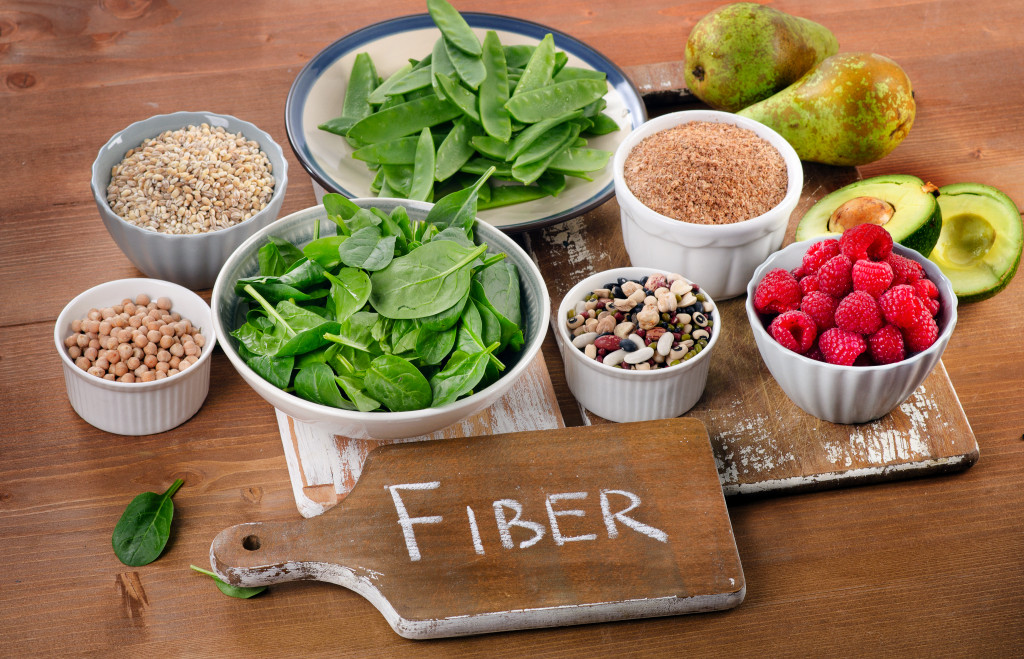The gut is home to trillions of bacteria that play an important role in our overall health. Recent studies have shown that the type and amount of gut bacteria can affect certain aspects of a person’s overall well-being, including their weight, mental health and mood.
The gut microbiota can influence weight in a number of ways. Many are still unknown about the link, but it is clear that maintaining gut health should be everyone’s priority. However, it has become increasingly difficult to ensure the diversity and health of gut bacteria with the lifestyle we lead. People do things that are disrupting the natural balance and the result is a problem in the form of numerous physical and emotional health problems.
The good news is that it can be repaired. By eating a balanced diet different vitamins and minerals, you can ensure that the good bacteria that keeps you healthy and happy are living a good life.

The following list explains some key nutrients that are important for gut health:
Fiber
Fiber is an important nutrient for gut health. It helps keep the digestive system moving and prevents constipation. Fiber also feeds the beneficial bacteria in the gut, helping to maintain a healthy balance of gut flora.
When you take in fiber, good bacteria break it down and make short-chain fatty acids like butyric acid, acetic acid and propionic acid. These acids regulate intestinal pH, improving digestion and nutrient absorption. Feeding the good bacteria in your gut is important because they will help keep pathogenic bacteria in check and maintain a healthy immune system. Fiber also helps to control blood sugar and lower cholesterol.
Fiber can be found in a variety of foods, including fruits, vegetables, legumes, whole grains and nuts. It’s important to include a variety of fiber-rich foods in your diet to get the most benefit.
Probiotics
The microbiome of the gastrointestinal tract contains trillions of organisms, some of which are known as probiotics or “good” bacteria. These beneficial microorganisms include strains such as lactobacillus and bifidobacteria, while harmful ones include clostridium and salmonella species.
A healthy diet rich in fiber can supply enough substrates for good bacterial growth, while certain foods like yogurt can introduce beneficial bacteria into your gut ecosystem. It has been shown that even a temporary change in the microbiome can have long term, positive effects on your health.
Probiotics are found naturally in fermented foods or can also be taken as a dietary supplement. There’s a number of foods that can give you probiotics such as sauerkraut, kimchi, kombucha, and yogurt.
It’s important to note that research on probiotic supplements does not support their effectiveness. You should look for a high-quality, multi-strain supplement.
Protein
Proteins are essential parts of every cell in your body. They are macronutrients composed of amino acids which play many roles including digestion, metabolism, immunity, and neurotransmitter function.
Protein can be found in various foods. Some that are particularly beneficial include legumes, fish, chicken and eggs which all contain high quality proteins. It’s also in milk. People who don’t like the taste of milk can instead consume products that are manufactured with milk protein concentrate such as cheese, yogurt, and ice cream.
Vitamin C
Vitamin C is a water-soluble vitamin necessary to maintain a healthy immune system, rebuild tissues and strengthen bones and teeth. It’s important to note that only plants create this vitamin because it’s not possible for animals or humans to synthesize it, so you have to eat plant foods rich in Vitamin C daily.
Vitamin C aids in the maintenance of gut health by helping the digestive system function properly. Moreover, scientists have found that it improves the gut barrier which protects the body from certain toxins. It also contributes to maintain the balance in the gut.
The best food sources of vitamin C are fruits such as oranges, grapefruit, kiwi fruit and strawberries. Vegetables such as broccoli and kale also contain significant amounts of Vitamin C together with other nutrients and fiber.
Zinc
Zinc is a trace mineral that the body only needs in small amounts, yet it’s essential for many biological processes including DNA synthesis and cell division. To make sure you’re getting enough zinc, eat whole grains such as oats, brown rice and wheat bread. You can also add meat to your diet such as beef, lamb or chicken. Shellfish like oysters contain high levels of zinc together with proteins and vitamin C.
If you are experiencing any problems with your gut health supplementing the foods mentioned above should help to correct these problems. Also don’t forget to drink enough water! It’s important for most functions of the body which includes digestion.




